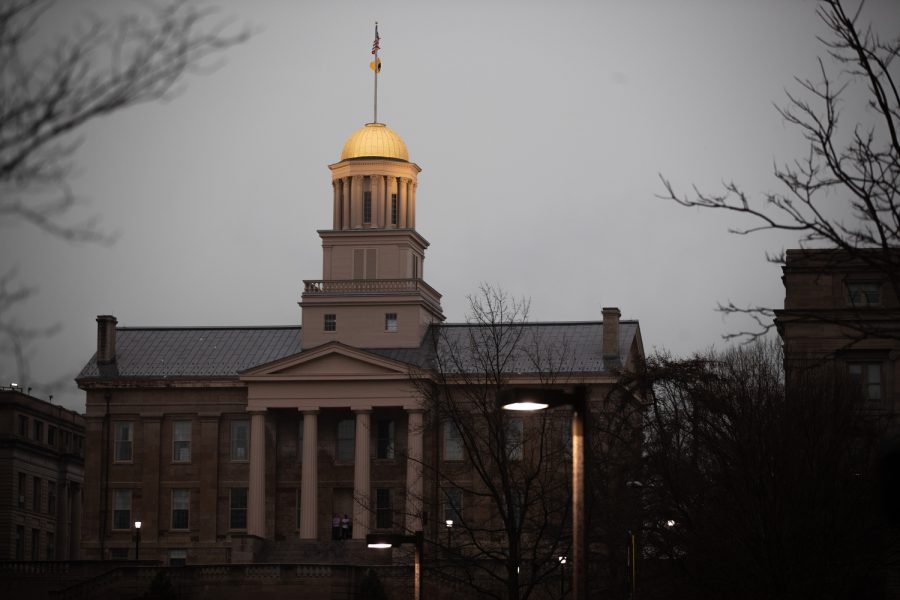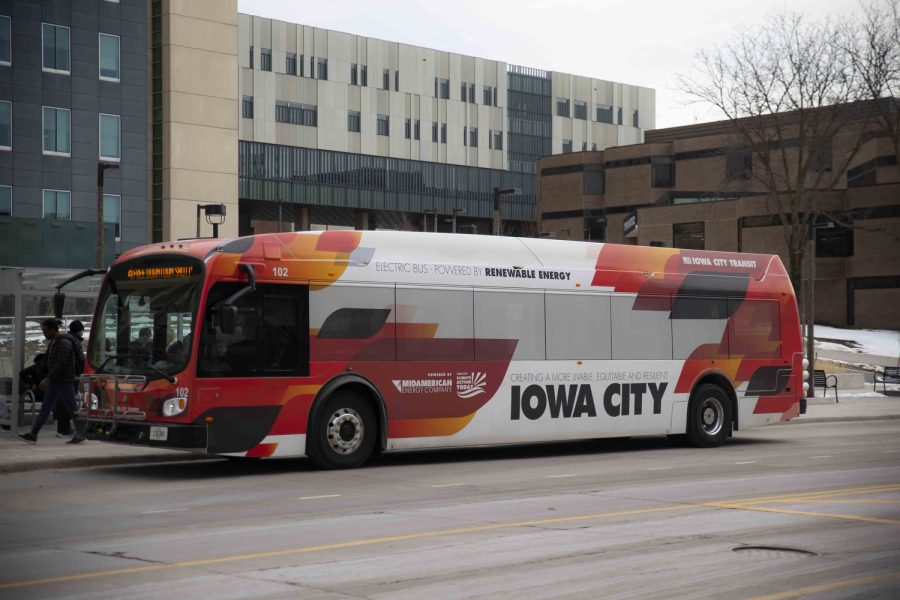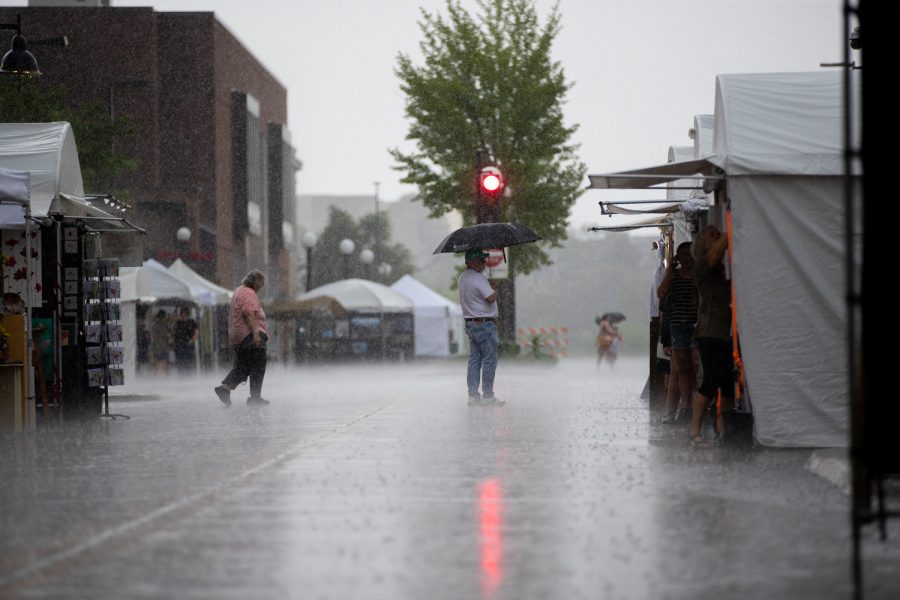People craned their heads Thursday to watch several UI women carrying buckets of water on their heads across campus.
Men accompanied them carrying yellow signs saying, “If you were in Africa, you would have started carrying water on your head at the age of 5,” and “An African woman spends three hours a day carrying water.”
The scene was an unusual sight in Iowa City, or anywhere else in the United States, but it is one that is all too familiar in many developing nations, a plight the students wanted to spotlight.
The event — sponsored by the nonprofit Nuru International and called Be Hope to Her — was conducted at 11 college campuses across the country to raise awareness about the lack of clean water available to many communities in Africa. Proceeds from donations will go to the drilling for four deep wells at schools in Kuria, Kenya.
According to the World Health Organization, 3,900 children die each day in Africa because of water-related disease, making it the No. 1 killer of children under 5. Fewer than half of the 700 million people living on the continent have clean drinking water.
In addition to the health risks, spending three hours a day carrying water deprives women of the chance to go to school or find other work.
Members of the student groups participating — Global Health Club, Engineers Without Borders, and Student Physicians for Social Responsibility — said the event was an eye-opening experience.
“It was definitely a challenge,” Global Health Club member Rachel Bender said. “I was sore after 20 minutes; I can’t imagine doing it three hours a day.”
There were “quite a few splashes,” she said, and it was hard figuring out how to balance the water.
“I’m surprised there wasn’t a car accident with how people were craning their heads,” Bender said. “It was a great way to catch people’s attention in a short amount of time.”
The students want a deep water well in each community near schools. This will reduce the risk of disease, experts said, and will allow more children to attend school.
Beyond collecting water, the follow-up task of cleaning that water proves equally difficult and time-consuming. While drilling wells deep enough to obtain clean water is the ultimate goal, the group also demonstrated a water-purification packet that serves as a temporary fix.
UI graduate student Michael Schaefer dropped a packet of chemicals in a bucket of dirty brown Iowa River water; within 25 minutes, the murky liquid had produced a jug of clear drinking water.
While the chemicals have provided a lot of help in many countries, and UI students have traveled to help implement their use, it isn’t a permanent solution, students said. They would rather see new, clean wells.
“It’s like an interim phase,” Schaefer said. “We don’t want to focus too much on it, but it helps prevent unnecessary illness and death.”
Schaefer said traveling to parts of Mexico where clean drinking water isn’t always available had a huge effect on his life.
“Seeing it brings you to a new level,” he said. “When you turn on your tap, you don’t take it for granted.”






